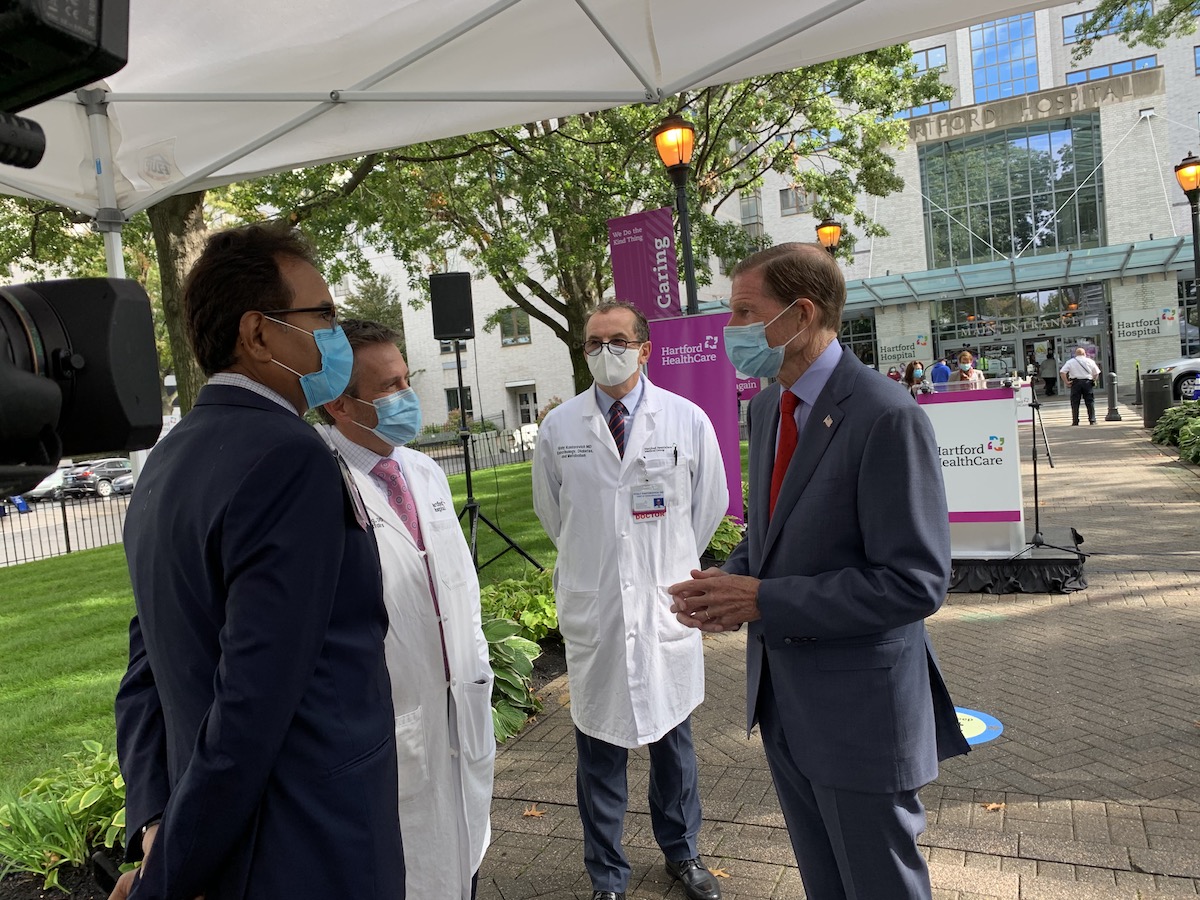Sen. Richard Blumenthal (D-Conn.), at a Oct. 6 news conference outside the entrance to Hartford Hospital, cautioned that rolling back the Affordable Care Act could be harmful to patients with pre-existing conditions like diabetes and heart disease.
Blumenthal, standing with Hartford Hospital President Bimal Patel and hospital leadership, said 52 percent of Connecticut residents have pre-existing conditions and some could have their coverage at risk if they are insured through the ACA and parts of the law are struck down.
“We know that diabetes cost, in insulin, is budget-breaking for people who have to pay for it — not as a luxury or convenience but as an essential life-saving medicine,” said Blumenthal, shown above at right. “In fact, in Connecticut there are 56,000 people who need insulin to survive and could lose that coverage.”
Dr. Vitaly Kantorovich, Hartford Hospital Chief of Endocrinology, said that although it’s not contagious, diabetes has reached pandemic levels around the world.
“In Connecticut, there are a quarter-million people who are diagnosed diabetics, more than 80,000 undiagnosed and probably three times that number who will or are at risk of becoming diabetics,” said Dr. Kantorovich. “It is associated with many significant adverse outcomes like heart disease and stroke; and accounts for billions and billions of dollars in medical costs and loss of the workforce.
“At Hartford Hospital and throughout Hartford HealthCare, we have excellent endocrinologists and diabetes educators working in inpatient care and transitioning our patients into the outpatient setting. We have to bring awareness and make sure that transition to the outpatient setting is not [interrupting] patients’ care.”
Patel noted that ensuring that people with pre-existing conditions get the care they need is critical, especially during the pandemic.
“Hartford Hospital has supported community health and wellness for 166 years through thick and thin,” said Patel. “This is one of the efforts where we must stay committed.”
Blumenthal, a member of the Senate Judiciary Committee, said healthcare will be a major focus of his questioning of Amy Coney Barrett during her Supreme Court confirmation hearing, set to begin Oct. 12.


